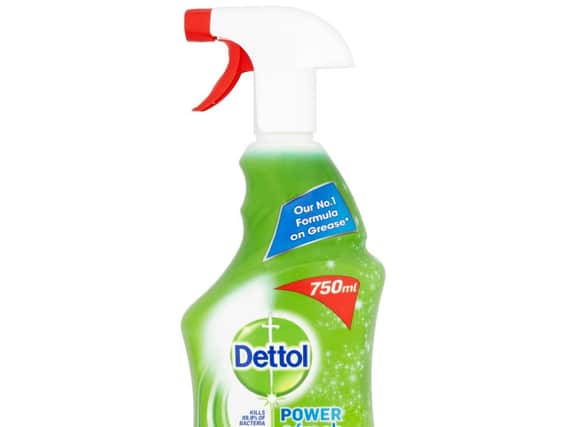'Do not inject Dettol into your body': Firm issues warning after Donald Trump's disinfectant comment


During his latest press conference, the US president noted that researchers were looking at the effects of disinfectants on the virus and wondered aloud if they could be injected into people, saying the virus "does a tremendous number on the lungs, so it would be interesting to check that".
Hours later disinfectant manufacturer RB, the company behind the Dettol and Lysol brands, issued a statement saying: "Due to recent speculation and social media activity, RB has been asked whether internal administration of disinfectants may be appropriate for investigation or use as a treatment for coronavirus.
Advertisement
Hide AdAdvertisement
Hide Ad"As a global leader in health and hygiene products, we must be clear that under no circumstance should our disinfectant products be administered into the human body (through injection, ingestion or any other route)."
And in vaccine news, the first human tests of a potential coronavirus vaccine have begun, but the scientist leading the programme has warned that a mass vaccination programme is still many months away.
So far, only two volunteers have been injected - one with a coronavirus vaccine candidate and one with a meningitis vaccine acting as a control.
Andrew Pollard, director of the Oxford Vaccine Group, said: "The reason we stuck with two volunteers is to make sure there are no unintended effects and we will monitor them very closely over the first few days.
Advertisement
Hide AdAdvertisement
Hide Ad"Then we will move on to some larger groups of individuals over the next few weeks."
Speaking on BBC Breakfast, he said the scientists didn't expect to see an immune response for the next 10 days or two weeks after the vaccine has been administered.
Prof Pollard said the volunteers that have been injected with the vaccine will not be deliberately exposed to the virus but will instead wait until they come across it in the community.
"Of course there isn't very much virus around in the community at the moment - the lockdown has had a big impact on transmission," he said.
Advertisement
Hide AdAdvertisement
Hide Ad"So it is difficult to predict exactly when they will meet the virus and it may be some months before that happens."
He said unlike other diseases, there is not yet a "human model" for Covid-19, meaning scientists do not know what is a safe dose to give volunteers in vaccine trials.
Prof Pollard added that testing the vaccine was not as simple as putting someone who has been vaccinated in the same room as someone suffering from coronavirus and is symptomatic.
"You are potentially putting those people at risk and we know people who have had large exposure to the virus, some have become extremely unwell - including some young people," he said.
Advertisement
Hide AdAdvertisement
Hide Ad"At this moment we don't have a treatment for coronavirus so we would have to do this extremely carefully."
Prof Pollard said: "You also want to get some consistency in the dose people are exposed to because.
"For example if you gave a much bigger dose to the people in the control group and they all got the disease and a much lower dose to the people in the group with the vaccine, you could make your vaccine look very good without it actually working."